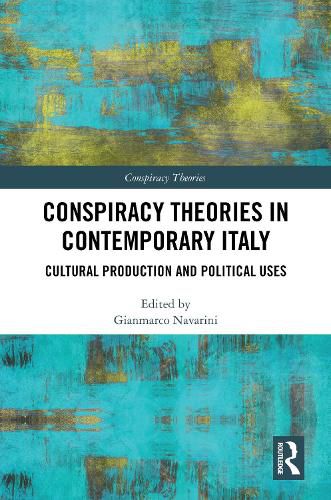Readings Newsletter
Become a Readings Member to make your shopping experience even easier.
Sign in or sign up for free!
You’re not far away from qualifying for FREE standard shipping within Australia
You’ve qualified for FREE standard shipping within Australia
The cart is loading…






This volume explores the role played by conspiracy narratives in the contemporary Italian political, cultural, and social context, through a series of case studies.
It begins with a historical and genealogical account of the troubled success of Italian conspiracy thinking from the early 1970s to the present day. Among the issues examined are the unclear division between legitimate/illegitimate forms of knowledge, the use of conspiracy as a confrontational discursive device, the emergence of moral panic, and the stabilization of information outlets against dominant official explanations. The analysis covers the case of a well-known national survey, and a digital platform specializing in conspiracy storytelling. The second axis of the book concerns the pervasive use of conspiracy as a theory or narrative that currently circulates in various Italian cultural fields: multiculturalism, immigration, and racism; Catholic traditionalism; football fandom; small business economics; and cooking and food.
This volume will be of interest to researchers of conspiracy theories, and Italian politics and history.
$9.00 standard shipping within Australia
FREE standard shipping within Australia for orders over $100.00
Express & International shipping calculated at checkout
Stock availability can be subject to change without notice. We recommend calling the shop or contacting our online team to check availability of low stock items. Please see our Shopping Online page for more details.
This volume explores the role played by conspiracy narratives in the contemporary Italian political, cultural, and social context, through a series of case studies.
It begins with a historical and genealogical account of the troubled success of Italian conspiracy thinking from the early 1970s to the present day. Among the issues examined are the unclear division between legitimate/illegitimate forms of knowledge, the use of conspiracy as a confrontational discursive device, the emergence of moral panic, and the stabilization of information outlets against dominant official explanations. The analysis covers the case of a well-known national survey, and a digital platform specializing in conspiracy storytelling. The second axis of the book concerns the pervasive use of conspiracy as a theory or narrative that currently circulates in various Italian cultural fields: multiculturalism, immigration, and racism; Catholic traditionalism; football fandom; small business economics; and cooking and food.
This volume will be of interest to researchers of conspiracy theories, and Italian politics and history.